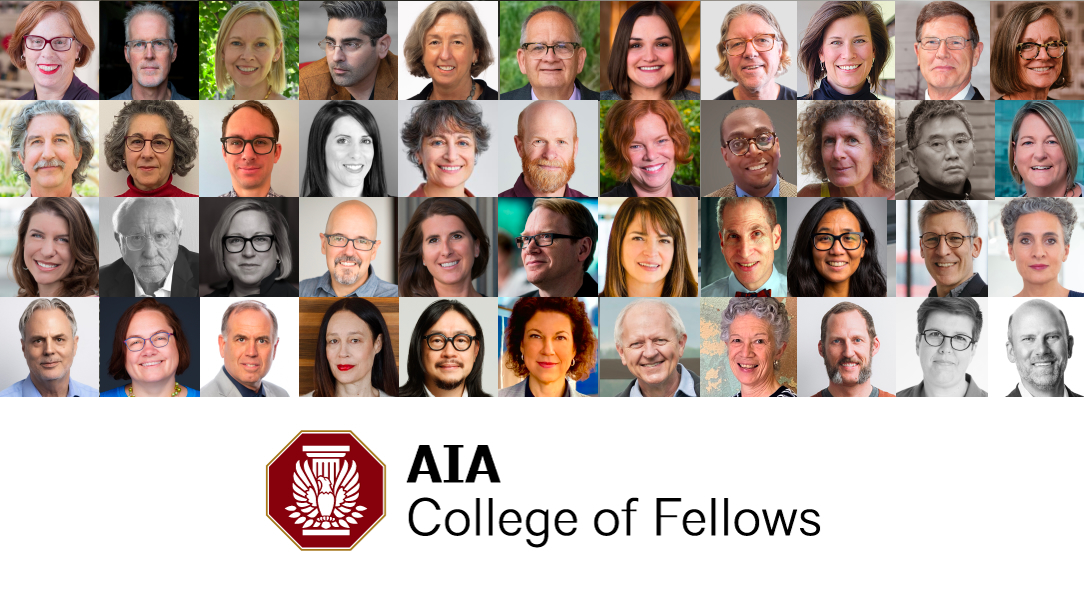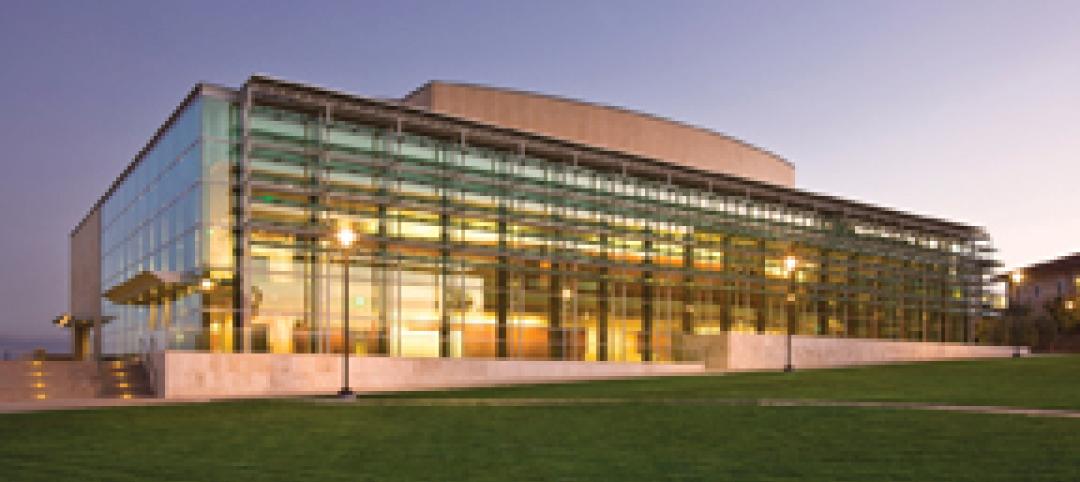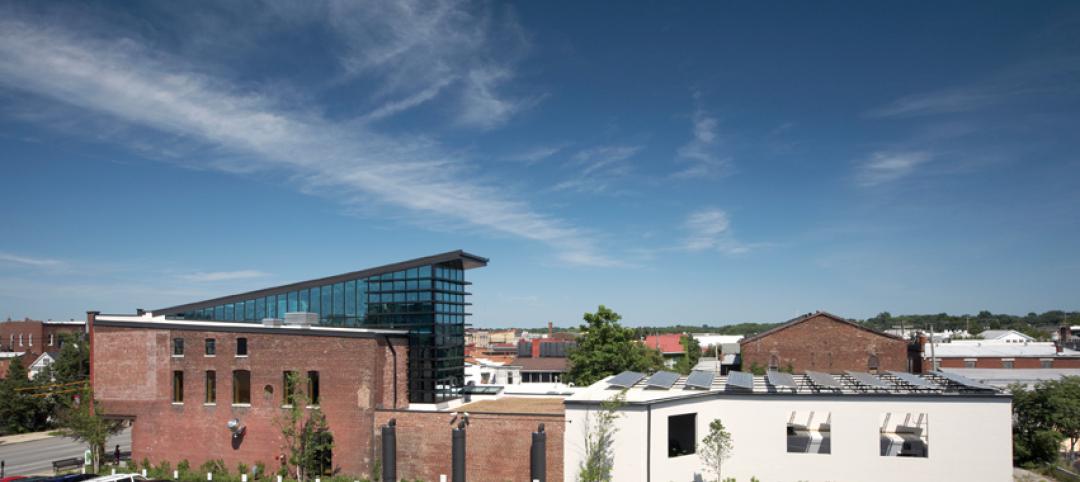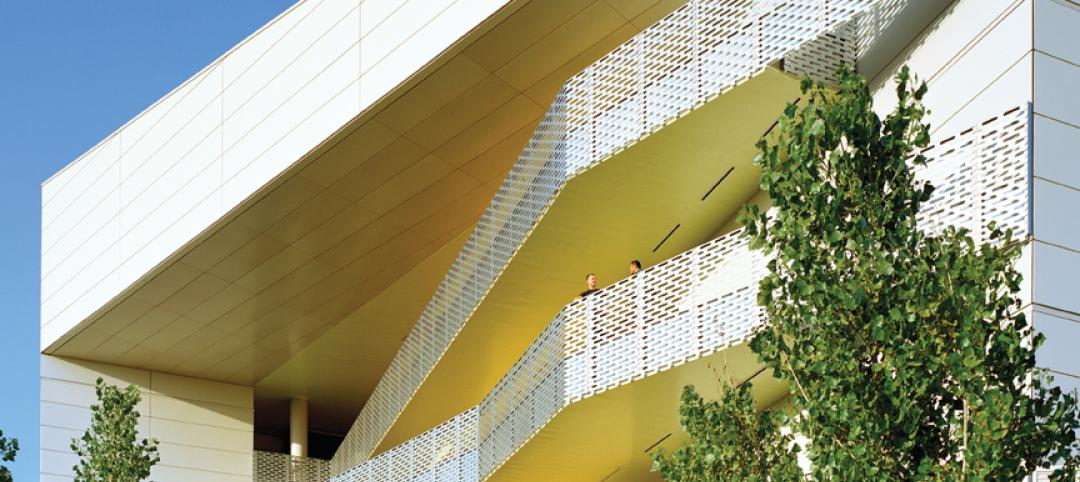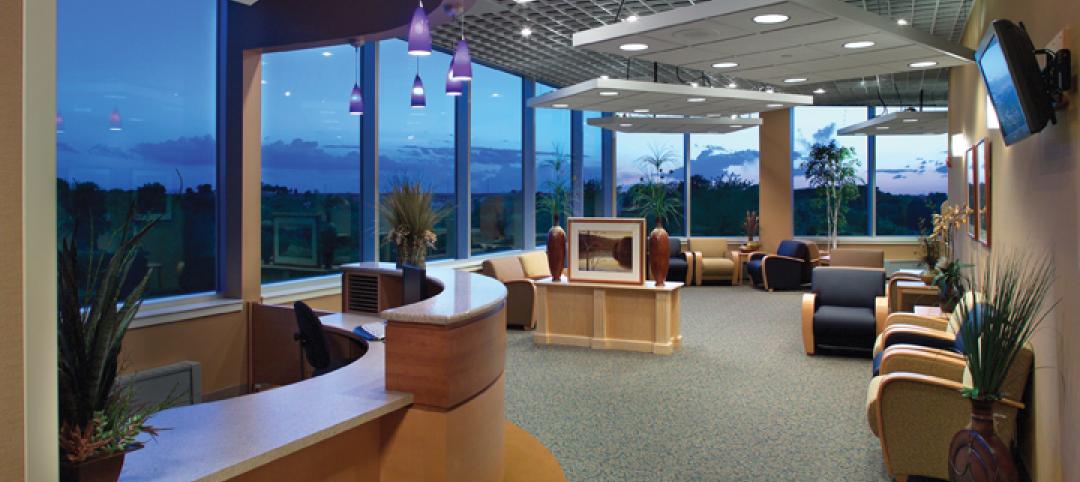The American Institute of Architects (AIA) is elevating 96 member-architects and 2 non-member-architects to its College of Fellows, an honor awarded to architects who have made significant contributions to the profession.
The fellowship program was developed to elevate architects who have achieved a standard of excellence in the profession and made a significant contribution to architecture and society on a national level. Prospective candidates must have at least 10 years of AIA architect membership and demonstrated influence in at least one of the following areas:
- Promoted the aesthetic, scientific, and practical efficiency of the profession.
- Advanced the science and art of planning and building by advancing the standards of practice.
- Coordinated the building industry, and the profession of architecture.
- Ensured the advancement of the living standards of people through their improved environment.
- Made the profession of ever-increasing service to society.
- Advanced the science and art of planning and building by advancing the standards of architectural education and training.
Fellows are selected by a seven-member Jury of Fellows. This year’s jury included Chair Lisa Lamkin, FAIA, Brown Reynolds Watford Architects, Inc; Carl D'Silva, FAIA, Perkins + Will; Sanford Garner, FAIA, RGCollaborative; Margaret McFadden Carney, FAIA, Cornell University; Pamela Rew, FAIA, KSS Architects; Anne Schopf, FAIA, Mahlum and Lourdes Solera, FAIA, MCHarry Associates.
Here is a full list of the 2024 AIA College of Fellows:
Douglass Alligood, FAIA, AIA New York Chapter, BIG
Jeffrey W. Allsbrook, FAIA, AIA Los Angeles, Standard Architecture
Eric Amel, FAIA, AIA Minneapolis, Clow Berg, Inc.
Michelle Amt, FAIA, AIA Central Virginia, VMDO Architects, P.C.
William P. Babbington, FAIA, AIA Denver, a section of AIA Colorado, Studio NYL Inc.
David A. Bailey, FAIA, AIA Middle Tennessee, Hastings Architecture
Thomas R. Bassett-Dilley, FAIA, AIA Chicago, Tom Bassett-Dilley Architect, Ltd.
Nancy Beckner Bastian, FAIA, AIA Philadelphia, CBP Architects
Samuel P. Batchelor, FAIA , Boston Society of Architects/AIA, designLab Architects
Jill A. Bergman, FAIA, AIA San Francisco, HDR, Inc
Cary Bernstein, FAIA, AIA San Francisco, Cary Bernstein Architect
Lily D. Berrios, FAIA, AIA Atlanta, Sizemore Group LLC
Gina L. Bocra, FAIA, AIA New York Chapter, New York City Department of Buildings
Ann Marie Borys, FAIA, AIA Seattle, University of Washington Department of Architecture
Anthony R. Brower, FAIA, AIA Los Angeles, Gensler
Abigail R. Brown, FAIA, AIA Washington DC, Gensler
Nicholas W. Cameron, FAIA, AIA Chicago, Perkins & Will Chicago
Teri S. Canada, FAIA, AIA Triangle, EVOKE Studio Architecture
Shannon Christensen, FAIA, AIA Montana, Cushing Terrell
Ida A. Clair, FAIA, AIA Central Valley, State of California
Drew Deering, FAIA, AIA Chicago, Moody Nolan
Colin L. Drake, FAIA, AIA Central Kentucky, JRA Architects
Todd A. Erlandson, FAIA, AIA Los Angeles, March Studio
Gregory Faulkner, FAIA, AIA San Francisco, Faulkner Architects
Edward R. Ford, FAIA, AIA Central Virginia
Ronald H. Frantz, Jr., FAIA, AIA Central Oklahoma, University of Oklahoma, College of Architecture
Matthew H. Griffith, FAIA, AIA Triangle, in situ studio
Michael L. Guthrie, FAIA, AIA Detroit, INFORM Studio
Jim Hanford, FAIA, AIA Seattle, The Miller Hull Partnership LLP
Thomas RC Hartman, FAIA, AIA Western Massachusetts, C&H Architects
Erleen K. Hatfield, FAIA, AIA New York Chapter, Hatfield Group
John A. Hawkins, FAIA, AIA Southern Indiana, a section of AIA Indiana TowerPinkster
Julia E. Hawkinson, FAIA, AIA Los Angeles, Los Angeles Unified School District
David F. Herron, FAIA, AIA Kansas City, herron + partners
Kristen M. Hess, FAIA, AIA Triangle, HH Architecture
Nicole A. Hollant-Denis, FAIA, AIA New York Chapter, Aaris Design Architects
Robert L. Holzbach, FAIA, AIA Washingto DC, Hickok Cole
Tae S. Hong, FAIA, AIA San Francisco, YKH Associates
Gary B. Hoyt, FAIA, AIA Florida Gulf Coast, Hoyt Architects
Jeanne E. Huntsman, FAIA, AIA Charlotte, Willdan
Joyce Hwang, FAIA, AIA Buffalo/WNY, University at Buffalo, School of Architecture and Planning
Douglas J. Ito, FAIA, AIA Seattle, SMR Architects
Jason J. Jewhurst, FAIA, Boston Society of Architects/AIA, Bruner/Cott & Associates
Hana Kassem, FAIA, AIA New York Chapter, Kohn Pedersen Fox Associates PC
Jeffrey A. Kenoff, FAIA, AIA New York Chapter, Kohn Pedersen Fox Associates PC
Hao E. Ko, FAIA, AIA San Francisco, Gensler
Matthew P. Krissel, FAIA, AIA Philadelphia, Creative Lab 3
Silvia Kuhle, FAIA, AIA Los Angeles, Standard Architecture
Sameer Kumar, FAIA, AIA New York Chapter, Techne Architectural Design D.P.C.
John B. Lape, FAIA, AIA Portland, a section of AIA Oregon, John Lape, Architect
Julia M. Laue, FAIA, AIA San Francisco, San Francisco Bureau of Architecture
Kathleen M. Lechleiter, FAIA, AIA Baltimore, Twopoint Studio, LLC
Anderson L. Lee, FAIA, AIA Hong Kong, Index Architecture Limited
Frederick Marks, FAIA, AIA Palomar, a section of AIA San Diego AIA Palomar
Edward T. Marley, FAIA, AIA Southern Arizona, Swaim Associates Ltd. Architects
J. Leora Mirvish, FAIA, AIA Washington DC, Quinn Evans Architects- DC
Robert Misel, FAIA, AIA Seattle, The Miller Hull Partnership LLP
Paul A. Murdoch, FAIA, AIA Los Angeles, Paul Murdoch Architects
Tara L. Myers, FAIA, AIA Middle Tennessee, Earl Swensson Associates, Inc
Carey R. Nagle, FAIA, AIA Iowa, BNIM Architects
Irene M. Nigaglioni, FAIA, AIA Dallas, IN2 Architecture
Kevin R. Nordmeyer, FAIA, AIA Iowa, BNIM Architects
Francesca R. Oliveira, FAIA, AIA San Francisco, Skidmore, Owings & Merrill, LLP
Jeffrey Pastva, FAIA, AIA Philadelphia, Scannapieco Development Corp.
Ludmilla D. Pavlova-Gillham, FAIA, AIA Western Massachusetts, University of Massachusetts
Maria de los Angeles A. Pellot Peraza, FAIA, AIA Chicago, UrbanWorks, Ltd.
Jeffrey D. Peterson, FAIA, Boston Society of Architects/AIA, Peterson Architects
Gretchen Pfaehler, FAIA, AIA Washington DC, InSite Consulting Architects
John G. Pfluger, FAIA, AIA Minneapolis, Cuningham Group
Michael T. Pinto, FAIA, AIA Los Angeles, NAC Architecture
Mel Price, FAIA, AIA Hampton Roads, Work Program Architects
Anath Ranon, FAIA, AIA Baltimore, Quinn Evans Architects
Ripley A. Rasmus, FAIA, AIA St. Louis
Laura F. Sachtleben, FAIA, AIA Houston, Landscape Forms
Taal R. Safdie, FAIA, AIA San Diego, Safdie Rabines Architects
Mark J. Sanderson, FAIA, AIA Philadelphia, DIGSAU Architecture | Urbanism
Todd Scott, FAIA, AIA Seattle, King County Historic Preservation
Catherine Seavitt Nordenson, FAIA, AIA New York Chapter, Catherine Seavitt Studio
John A. Shoesmith, FAIA, AIA Seattle, Perkins Eastman
Kathrina Simonen, FAIA, AIA Seattle, University of Washington Department of Architecture
Sanford L. Smith, FAIA, AIA Orange County, Hoag Hospital
Jonathan D. Solomon, FAIA, AIA Chicago, Presservation Futures
Craig S. Spangler, FAIA, AIA Philadelphia, The Ballinger Company
Edward M. Steinfeld, FAIA, AIA Buffalo/WNY, IDEA Center, School of Architecture & Planning
Kent W. Suhrbier, FAIA, AIA Pittsburgh, Bohlin Cywinski Jackson
James Jesse Thompson, FAIA, AIA Maine, Kaplan Thompson Architects
Ann Thompson, FAIA, AIA Chicago, Related Midwest
A. J. Tinson, FAIA, AIA New York Chapter, Hart Howerton
Amanda H. Tullos, FAIA, AIA Houston, GreeNexus Consulting
Mark W. Vaughan, FAIA, AIA Dallas, Page Southerland Page
Moses Vaughan, FAIA, AIA San Francisco, WRNS Studio
Roderic K. Walton, FAIA, AIA Chicago, Moody Nolan
Bruce R. Wardell, FAIA, AIA Central Virginia, BRW Architects, P.C.
Tilman E. Wheeler, FAIA, AIA Chattanooga, Tinker Ma, Inc.
R. John Woelfling, FAIA, AIA New York Chapter, Dattner Architects
Paul S. Woolford, FAIA, AIA San Francisco, HOK Architects, Inc
2024 Honorary Fellows:
Héctor Esrawe, Hon. FAIA
Josep Miàs, Hon. FAIA
Related Stories
| Feb 11, 2011
RS Means Cost Comparison Chart: Office Buildings
This month's RS Means Cost Comparison Chart focuses on office building construction.
| Feb 11, 2011
Sustainable features on the bill for dual-building performing arts center at Soka University of America
The $73 million Soka University of America’s new performing arts center and academic complex recently opened on the school’s Aliso Viejo, Calif., campus. McCarthy Building Companies and Zimmer Gunsul Frasca Architects collaborated on the two-building project. One is a three-story, 47,836-sf facility with a grand reception lobby, a 1,200-seat auditorium, and supports spaces. The other is a four-story, 48,974-sf facility with 11 classrooms, 29 faculty offices, a 150-seat black box theater, rehearsal/dance studio, and support spaces. The project, which has a green roof, solar panels, operable windows, and sun-shading devices, is going for LEED Silver.
| Feb 11, 2011
BIM-enabled Texas church complex can broadcast services in high-def
After two years of design and construction, members of the Gateway Church in Southland, Texas, were able to attend services in their new 4,000-seat facility in late 2010. Located on a 180-acre site, the 205,000-sf complex has six auditoriums, including a massive 200,000-sf Worship Center, complete with catwalks, top-end audio and video system, and high-definition broadcast capabilities. BIM played a significant role in the building’s design and construction. Balfour Beatty Construction and Beck Architecture formed the nucleus of the Building Team.
| Feb 11, 2011
Kentucky’s first green adaptive reuse project earns Platinum
(FER) studio, Inglewood, Calif., converted a 115-year-old former dry goods store in Louisville, Ky., into a 10,175-sf mixed-use commercial building earned LEED Platinum and holds the distinction of being the state’s first adaptive reuse project to earn any LEED rating. The facility, located in the East Market District, houses a gallery, event space, offices, conference space, and a restaurant. Sustainable elements that helped the building reach its top LEED rating include xeriscaping, a green roof, rainwater collection and reuse, 12 geothermal wells, 81 solar panels, a 1,100-gallon ice storage system (off-grid energy efficiency is 68%) and the reuse and recycling of construction materials. Local firm Peters Construction served as GC.
| Feb 11, 2011
Former Richardson Romanesque hotel now houses books, not beds
The Piqua (Ohio) Public Library was once a late 19th-century hotel that sat vacant and deteriorating for years before a $12.3 million adaptive reuse project revitalized the 1891 building. The design team of PSA-Dewberry, MKC Associates, and historic preservation specialist Jeff Wray Associates collaborated on the restoration of the 80,000-sf Richardson Romanesque building, once known as the Fort Piqua Hotel. The team restored a mezzanine above the lobby and repaired historic windows, skylight, massive fireplace, and other historic details. The basement, with its low ceiling and stacked stone walls, was turned into a castle-like children’s center. The Piqua Historical Museum is also located within the building.
| Feb 11, 2011
Justice center on Fall River harbor serves up daylight, sustainable elements, including eucalyptus millwork
Located on historic South Main Street in Fall River, Mass., the Fall River Justice Center opened last fall to serve as the city’s Superior and District Courts building. The $85 million facility was designed by Boston-based Finegold Alexander + Associates Inc., with Dimeo Construction as CM and Arup as MEP. The 154,000-sf courthouse contains nine courtrooms, a law library, and a detention area. Most of the floors have the same ceiling height, which will makes them easier to reconfigure in the future as space needs change. Designed to achieve LEED Silver, the facility’s elliptical design offers abundant natural daylight and views of the harbor. Renewable eucalyptus millwork is one of the sustainable features.
| Feb 11, 2011
Research facility separates but also connects lab spaces
California State University, Northridge, consolidated its graduate and undergraduate biology and mathematics programs into one 90,000-sf research facility. Architect of record Cannon Design worked on the new Chaparral Hall, creating a four-story facility with two distinct spaces that separate research and teaching areas; these are linked by faculty offices to create collaborative spaces. The building houses wet research, teaching, and computational research labs, a 5,000-sf vivarium, classrooms, and administrative offices. A four-story outdoor lobby and plaza and an outdoor staircase provide orientation. A covered walkway links the new facility with the existing science complex. Saiful/Bouquet served as structural engineer, Bard, Rao + Athanas Consulting Engineers served as MEP, and Research Facilities Design was laboratory consultant.
| Feb 11, 2011
A feast of dining options at University of Colorado community center, but hold the buffalo stew
The University of Colorado, Boulder, cooked up something different with its new $84.4 million Center for Community building, whose 900-seat foodservice area consists of 12 micro-restaurants, each with its own food options and décor. Centerbrook Architects of Connecticut collaborated with Denver’s Davis Partnership Architects and foodservice designer Baker Group of Grand Rapids, Mich., on the 323,000-sf facility, which also includes space for a career center, international education, and counseling and psychological services. Exterior walls of rough-hewn, variegated sandstone and a terra cotta roof help the new facility blend with existing campus buildings. Target: LEED Gold.
| Feb 11, 2011
Chicago high-rise mixes condos with classrooms for Art Institute students
The Legacy at Millennium Park is a 72-story, mixed-use complex that rises high above Chicago’s Michigan Avenue. The glass tower, designed by Solomon Cordwell Buenz, is mostly residential, but also includes 41,000 sf of classroom space for the School of the Art Institute of Chicago and another 7,400 sf of retail space. The building’s 355 one-, two-, three-, and four-bedroom condominiums range from 875 sf to 9,300 sf, and there are seven levels of parking. Sky patios on the 15th, 42nd, and 60th floors give owners outdoor access and views of Lake Michigan.
| Feb 11, 2011
Iowa surgery center addresses both inpatient and outpatient care
The 12,000-person community of Carroll, Iowa, has a new $28 million surgery center to provide both inpatient and outpatient care. Minneapolis-based healthcare design firm Horty Elving headed up the four-story, 120,000-sf project for St. Anthony’s Regional Hospital. The center’s layout is based on a circular process flow, and includes four 800-sf operating rooms with poured rubber floors to reduce leg fatigue for surgeons and support staff, two substerile rooms between each pair of operating rooms, and two endoscopy rooms adjacent to the outpatient prep and recovery rooms. Recovery rooms are clustered in groups of four. The large family lounge (left) has expansive windows with views of the countryside, and television monitors that display coded information on patient status so loved ones can follow a patient’s progress.


